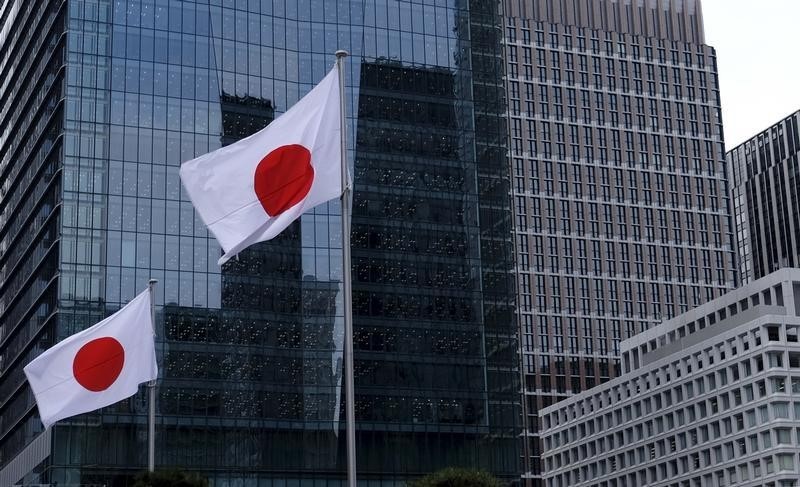(Bloomberg) -- Japan’s economy has slipped from sales-tax hangover into deep recession, official data is set to show on Monday, with worse to come even as coronavirus restrictions on activity are gradually lifted.
Analysts see the economy shrinking at an annualized pace of 4.5% in the first three months of this year. A 21.5% cratering of gross domestic product is then expected in the current quarter as the broader impact of the pandemic lashes the economy.
Tokyo to Stay Under Virus Emergency Even as Japan Eases
While Prime Minister Shinzo Abe’s decision to partially lift a nationwide state of emergency offers hope that companies in Japan’s service sector now have a chance to start a slow recovery, manufacturers are likely in for a longer wait as global demand continues to take a battering.
Aware that the economy still needs more life-support measures, Abe called Thursday for a second extra budget barely two weeks after parliament passed a beefed-up first supplementary budget. Existing stimulus measures already total more than 20% of GDP.
Hopes for a V-shaped pickup for Japan should be cast aside, said Yasunari Ueno, chief market economist at Mizuho Securities Co., adding that the global recovery needed by Japan’s exporters is likely to be slow and come in fits and starts.
“Any expectation that manufacturing will be a catalyst for recovery is nonsense,” Ueno said, ruling out the notion that continued social distancing measures might cause the service sector to recover at a slower pace than the factory sector.
That’s bad news for Japan’s industrial heartlands, such as Aichi prefecture where Toyota Motor (NYSE:TM) Corp.’s headquarter is based. Some 38% of the prefecture’s economy is based on manufacturing, compared with only 9% of Tokyo’s, where services comprise 85% of output. Manufacturers generally have more of a presence outside the greater Tokyo area.
Toyota said Tuesday that it expects profit to tumble 80% this fiscal year to a nine-year low as its car sales take a bigger hit than during the global financial crisis.
PMI data still shows service sector activity in a far weaker state than manufacturing, but that’s likely to change in the second quarter, according to Hiroshi Ugai, chief Japan economist at JPMorgan Chase (NYSE:JPM) & Co.
“For Japan, exports and production will get extremely bad,” given the strict lockdowns implemented in the U.S. and Europe, said Ugai. “Companies just aren’t going to put any money into capex under these kinds of circumstances.”
Ugai expects GDP to contract an annualized 42% this quarter, the bleakest forecast among 25 analysts surveyed by Bloomberg.
Emergency Eased
Still, lifting the state of emergency outside the main urban areas of Tokyo, Yokohama and Osaka may help improve domestic consumption, though the return to shops, restaurants and offices is likely to be cautious.
Without a vaccine, Japan like other nations will face the risk of further waves of infections, and having to shut down parts of the economy as those occur, Mizuho’s Ueno said.
Why a Second Wave of Covid-19 Is Already a Worry: QuickTake
For the country’s service sector, another likely factor that could extend the recession is tourism -- previously one of the clearest success stories of Abenomics.
Until last year, the number of overseas visitors to Japan had risen around five-fold over eight years. But spending by foreign tourists plunged 42% in the first quarter of 2020, according to the Japan Tourism Agency.
The drop is likely to worsen in the current quarter as the pandemic has intensified. The loss will be felt especially in places outside Tokyo where overseas tourists have spent the most such as Osaka, Kyoto, Hokkaido and Fukuoka.
©2020 Bloomberg L.P.
